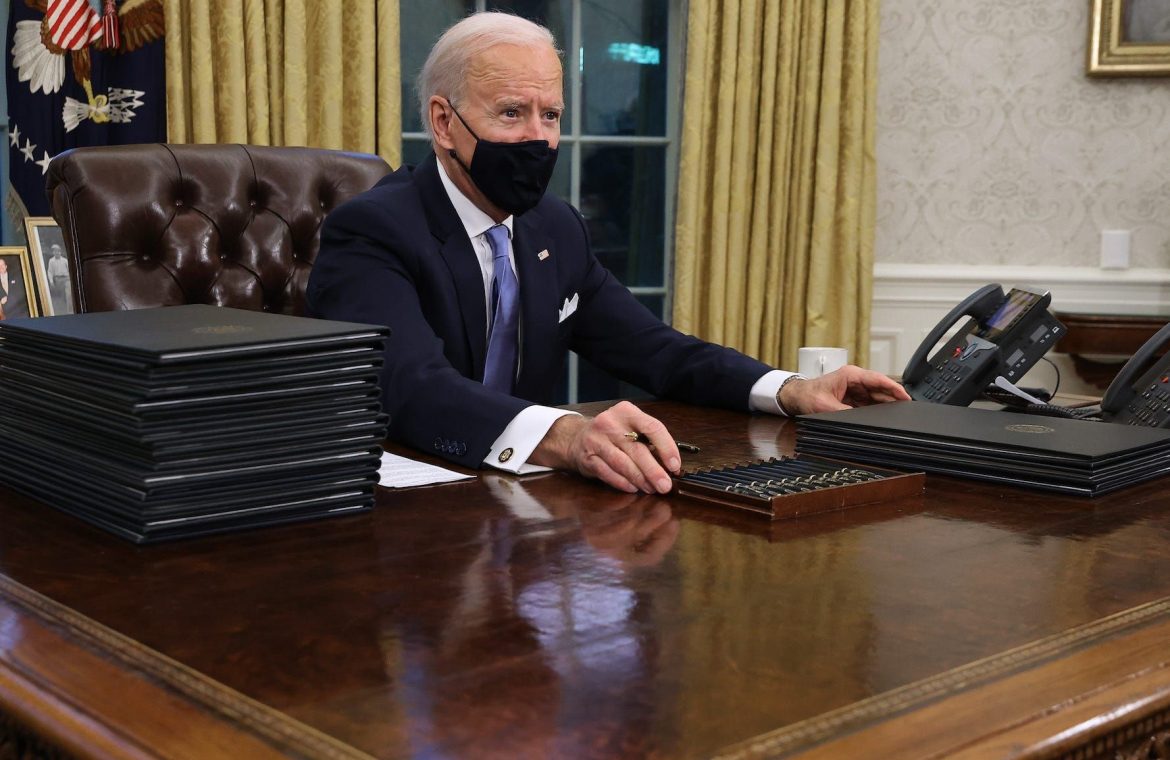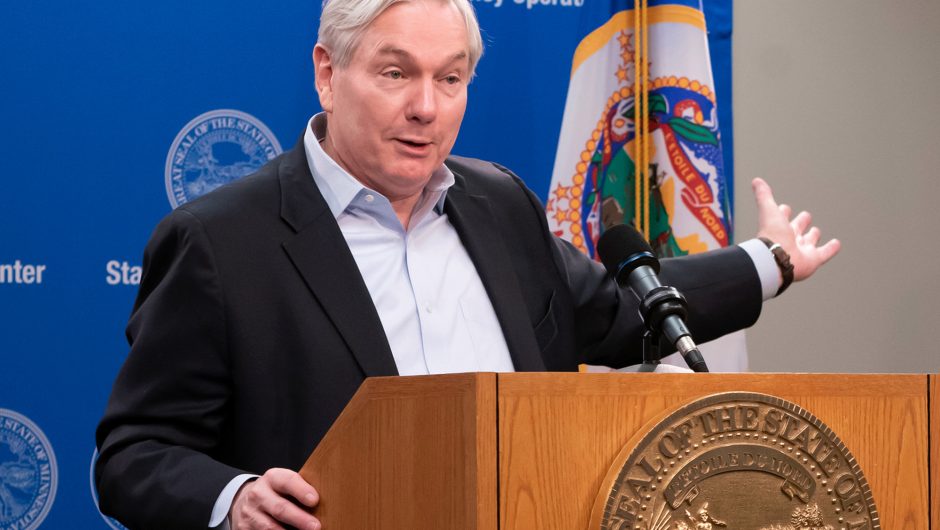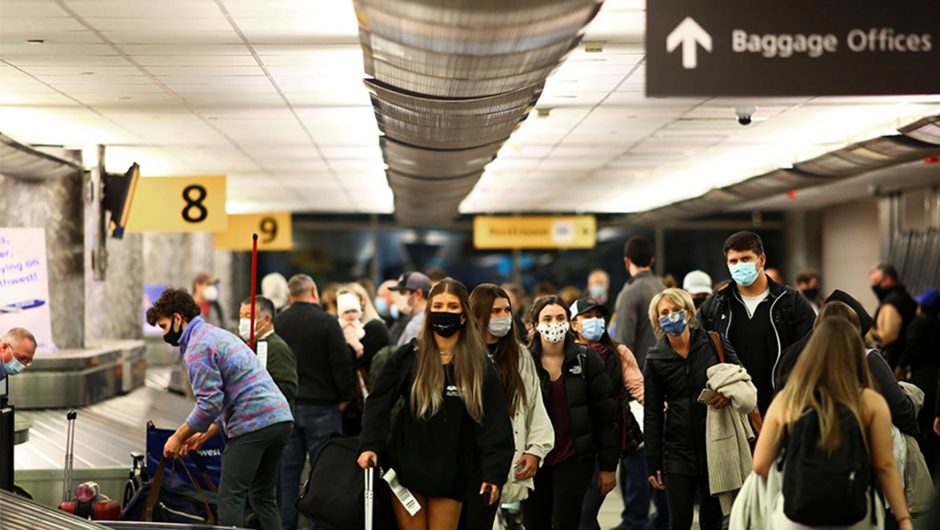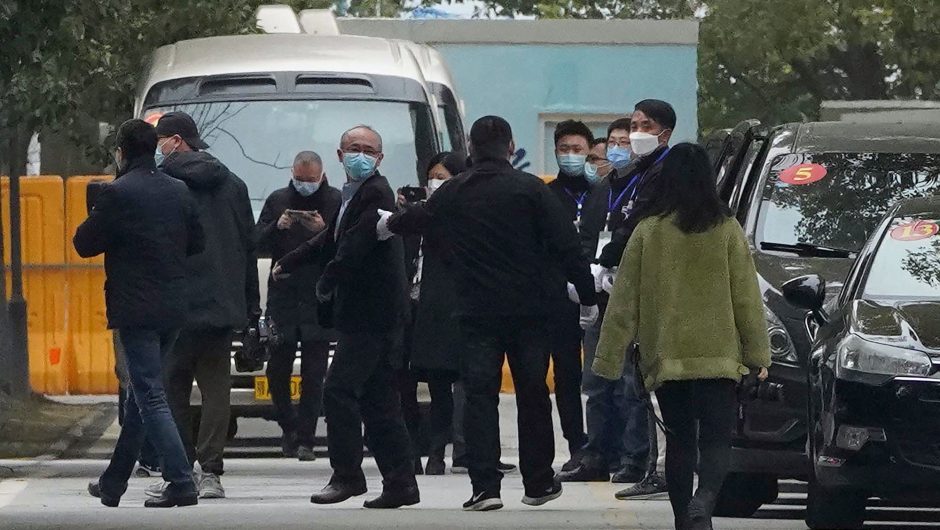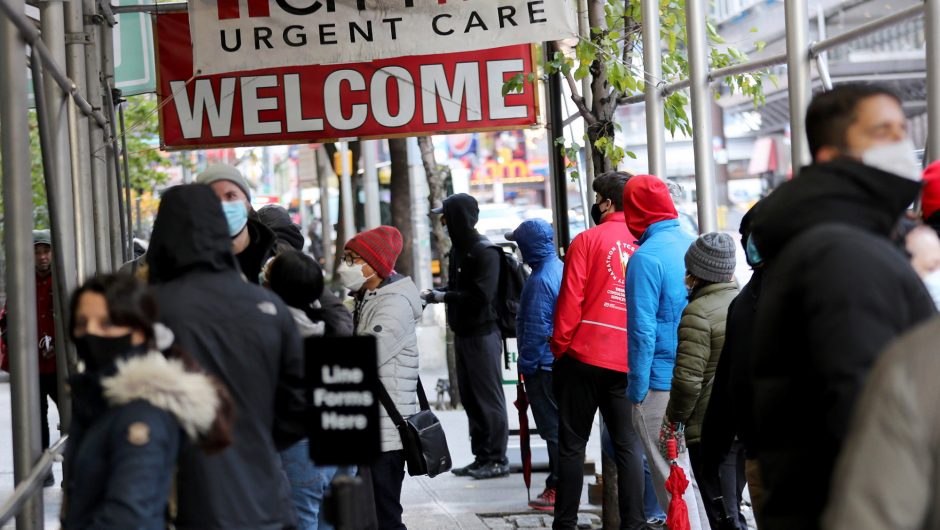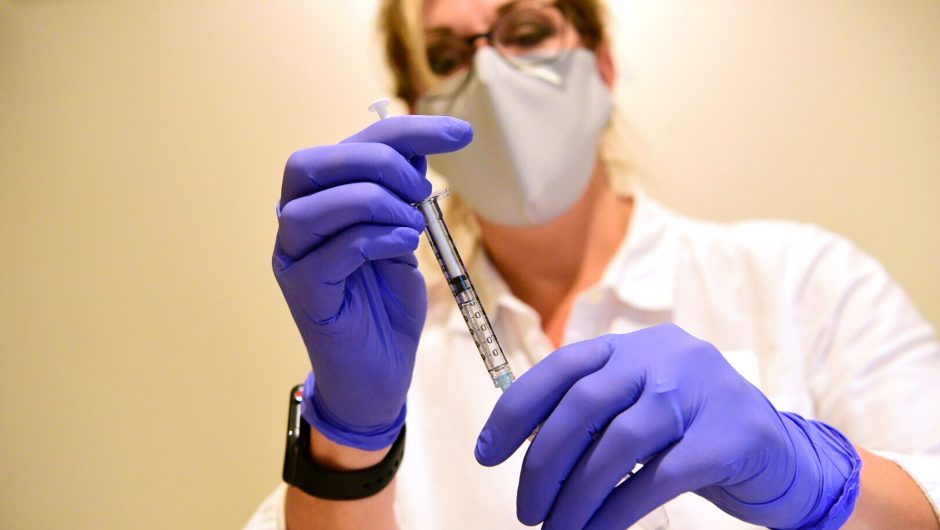President Joe Biden in the Oval Office after his inauguration on January 20, 2021 in Washington, DC. Chip Somodevilla/Getty Images
President Biden’s ambitious plan to improve the US’s coronavirus vaccine rollout has hit a snag.
About 20 million vaccine doses are missing, Politico reported. The government has delivered them to states, but states haven’t administered them to patients.
The Trump administration failed to track where vaccine doses were going and when once they had been delivered to states.
Visit Business Insider’s homepage for more stories.
President Biden has ambitious pandemic plans for his first few months in office: By mid-February, he wants 100 federally supported coronavirus vaccination centers up and running. By the end of April, he wants 100 million doses in Americans’ arms, which requires an average of 1 million shots to be given per day.
But his administration has already hit a snag during its first 10 days in the White House: some 20 million COVID-19 vaccine doses are unaccounted for – the federal government has paid for and delivered them to states, but there’s no record that those doses have been doled out to patients.
Biden’s newly minted COVID response team spent the last week trying to manually track down these millions of missing doses by calling up officials and healthcare providers from different states, Politico reported Saturday.
Read more: Coronavirus variants threaten to upend pandemic progress. Here’s how 4 top vaccine makers are fighting back.
“I think they were really caught off guard by that,” one Biden advisor told Politico. “It’s a mess.”
The previous administration elected not to track vaccine doses across every step of the federal to state to patient pipeline; “Operation Warp speed,” the vaccine rollout program started by Donald Trump, prioritized dose distribution, and didn’t require states give updates on what happened to their doses until the shots were administered.
Fifty million doses have been distributed to US states as of Sunday, but only 31 million of those doses have been administered across the country, according to the CDC.
Story continues
In order to accelerate the country’s vaccine rollout, Biden’s team must figure out what accounts for that stark difference between distributed and administered doses – and what the hold up is.
‘Nobody had a complete picture’
The Trump administration hoped to vaccinate 20 million people by the end of 2020 but fell short in part because it took no responsibility for overseeing vaccine rollouts at the state level.
Many state health departments have said they lacked sufficient funding and staffing to manage mass vaccinations. In the last month, vaccine shortages have forced clinics in states like Virginia to cancel vaccine appointments.
WASHINGTON, DC – DECEMBER 08: US President Donald Trump greets the crowd before he leaves at the Operation Warp Speed Vaccine Summit on December 08, 2020 in Washington, DC. The president signed an executive order stating the US would provide vaccines to Americans before aiding other nations. Tasos Katopodis/Getty Images
Biden called the US’s vaccine rollout under Trump “a dismal failure.”
The Trump administration didn’t pass along detailed data about how federal to state distribution worked to members of Biden’s transition team ahead of the January 20 inauguration.
While the federal government has a vaccine distribution tracker, named Tiberius, the transition team didn’t get access to it until days before Biden took office, Politico reported. It then took some time for Biden’s COVID response team to discover Tiberius only tracked how many doses states received, and states records indicating when and where doses had been administered.
Every part of the process between those two steps – vaccine distribution to states and those vaccines being jabbed into arms – was an untracked black box.
“Nobody had a complete picture,” Julie Morita, a member of the Biden transition team, told Politico. “The plans that were being made were being made with the assumption that more information would be available and be revealed once they got into the White House.”
‘There are places with vaccines they are not using yet’RN Courtney Senechal carries a special refrigerated box of Moderna coronavirus vaccines for use at the East Boston Neighborhood Health Center in Boston, Massachusetts on December 24, 2020. JOSEPH PREZIOSO/AFP via Getty Images
States’ public health systems, presumably, track where vaccine doses are stored, when they’re shipped from state warehouses to clinics, and how many doses are located where. But for now, the federal government has no idea what that tracking looks like, and what distribution plan each state is following.
Biden’s advisors told Politico the missing doses are spread out across the states, but that the COVID response team has yet to track them all down or figure out why the vaccines aren’t being administered immediately.
“Much of our work over the next week is going to make sure that we can tighten up the timelines to understand where in the pipeline the vaccine actually is and when exactly it is administered,” Rochelle Walensky, the new director of the CDC, told USA Today Thursday.
Boxes containing the Pfizer-BioNTech Covid-19 vaccine are prepared to be shipped at the Pfizer Global Supply Kalamazoo manufacturing plant in Kalamazoo, Michigan on December 13, 2020. Morry Gash/Pool/AFP via Getty Images
A lag in reporting likely accounts for 10% of the missing doses, two officials told Politico. It takes up to three days for states to report they’ve administered a shot.
But the other 18 million doses that remain unaccounted for are in limbo – stored in freezers and warehouses, held in reserve at clinics, or in transit – across the country.
Some states, concerned by looming vaccine shortages, are holding hundreds of thousands of doses in reserve so that citizens who’ve gotten their first doses are guaranteed to have a second dose waiting for them after the requisite three- or four-week interval.
The Biden administration hopes more transparency about when and how many doses will be shipped to states over the next three weeks will encourage state officials to stop holding doses in reserve.
“We know there are places in the country without enough vaccine, and at the same time, there are places with vaccines they are not using yet,” Andy Slavitt, senior advisor to the COVID response team, told USA Today. “This is a natural challenge states are facing.”
Read the original article on Business Insider


